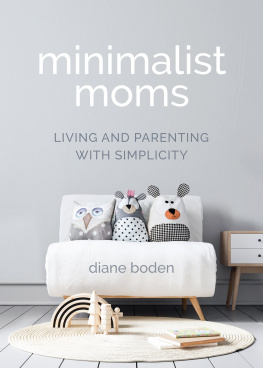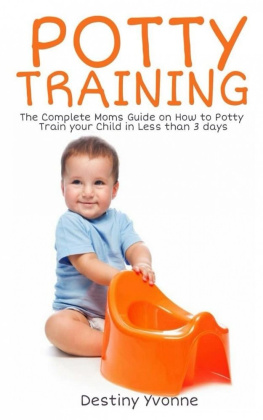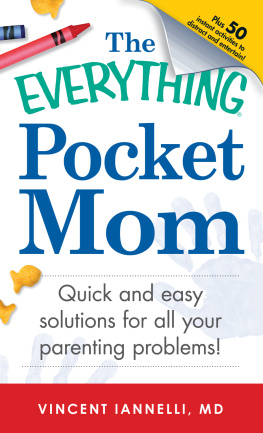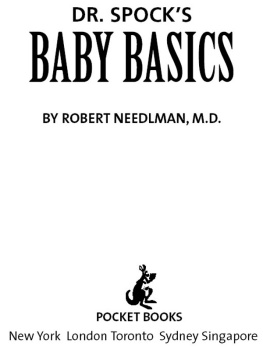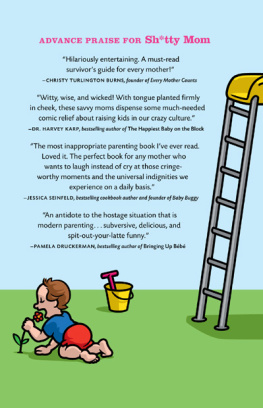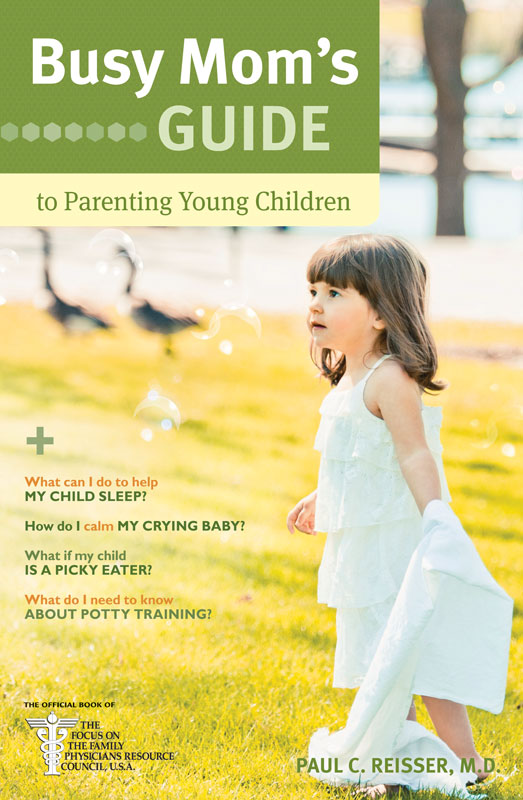The information contained in this book provides a general overview of many health-related topics. It is not intended to substitute for advice that you might receive from your childs physician, whether by telephone or during a direct medical evaluation. Furthermore, health-care practices are continually updated as a result of medical research and advances in technology. You should therefore check with your childs doctor if there is any question about current recommendations for a specific problem. No book can substitute for a direct assessment of your child by a qualified health-care professional.
Visit Tyndale online at www.tyndale.com.
Visit Focus on the Family at www.FocusOnTheFamily.com.
TYNDALE and Tyndales quill logo are registered trademarks of Tyndale House Publishers, Inc.
Focus on the Family and the accompanying logo and design are federally registered trademarks of Focus on the Family, Colorado Springs, CO 80995.
Busy Moms Guide to Parenting Young Children
Copyright 2012 by Focus on the Family. All rights reserved.
Edited by Kara Conrad; produced with the assistance of The Livingstone Corporation. Adapted from the Complete Guide to Baby and Child Care , ISBN 978-1-4143-1305-4. Copyright 2007 by Focus on the Family.
Cover photograph taken by Stephen Vosloo. Copyright by Focus on the Family. All rights reserved.
Designed by Jennifer Ghionzoli
Scripture taken from the Holy Bible, New International Version , NIV. Copyright 1973, 1978, 1984 by Biblica, Inc. Used by permission of Zondervan. All rights reserved worldwide. www.zondervan.com.
Library of Congress Cataloging-in-Publication Data
Reisser, Paul C.
Busy moms guide to parenting young children / Paul C. Reisser.
p. cm. (Complete guides)
Includes bibliographical references (p. ) and index.
ISBN 978-1-4143-6459-9 (sc)
1. InfantsCare. 2. Child care. 3. Child development. 4. Child rearing. I. Title.
RJ61.R4164 2012
649.1dc23 2011044279
Foreword
Fifty years ago popular visions of the world of tomorrow included not only flying cars and routine trips to outer space, but also twenty- to thirty-hour workweeks and a bounty of leisure time for everyone by the end of the twentieth century.
Instead, more than a decade into the twenty-first century, we are dealing with exponential increases in the complexity our lives. Were working harder than ever to earn a living while juggling family responsibilities and a multitude of other commitments. Even when were supposedly off duty, there are always dozens of e-mails to wade through, cell phones sounding off at all hours, and social networking sites beckoning night and day. Furthermore, if we need information about anything, Google will be happy to summon more websites than we can possibly visit. Yet this overabundance of information sources doesnt always satisfy our need for wisdom and insight, especially when dealing with issues concerning some of the most important people in our lives: our children.
For more than three decades Focus on the Family has been a trusted resource for mothers and fathers as they have navigated the entire journey of parenting, from the first babys cry in the delivery room to the release of their last young adult to (hopefully) responsible independence. Several years ago Focus on the Familys Physicians Resource Council prepared the Complete Guide to Baby and Child Care, and in 2007 a revised and expanded edition of this book was released. I had the privilege of serving as the primary author for both editions and can say without hesitation that the book was definitely complete , weighing in on virtually every topic related to parenting and the health of infants, children, and teens. At nine hundred pages, this was not a book to tuck into a handbag for a casual read over lunch.
Young children never fail to give parents plenty to think about (or lose sleep over), and busy schedules arent always compatible with the task of sifting through the good and bad parenting advice on the Internet, or wading through the contents of a large book. We thus thought it would be helpful to distill the Complete Guide s core concepts about parenting infants and young children into a smaller volume.
We have framed key ideas in the form of questions and answers, and have included a lot of practical advice, while trying to avoid a cookbook approach to parenting. Children are not built like cars or computers; they do not arrive with instruction manuals that guarantee that B will happen if you do A . Furthermore, what may work like a charm for your firstborn may prove to be an utter failure with child number two. Nevertheless, parenting is too important a task to approach without spending some time studying a basic road map and reviewing some trustworthy travelers advisories.
This book is one in a series of Busy Moms Guides, all of which are intended to provide help and hope for important concerns of family life. By the way, we would be very pleased if these guides would prove useful to some busy dads as well.
Paul C. Reisser, M.D.
November 2011
Chapter 1
Preparing Yourself and Your Family
So youre getting ready to add a new member to your family. Congratulations! If this is your first child, you will probably have some apprehensions about the coming weeksor, for that matter, about your babys first days (and nights) at home. Will he get enough nourishment? How often should he be fed? Where should he sleep? Will you get any sleep? What if he starts cryingand wont stop? If there are other children at home, how will they respond to the new arrival?
Many of these questions may have already been addressed in a childbirth or parenting-preparation class. And if you have older children at home, you have already dealt with most of these concerns before and may not feel the need for any further basic training. But just in case you didnt get all the bases covered, the will cover the ABCs of new baby care.
We begin, however, with a few important reminders about taking care of yourself, your newborn, and the other important people in your life before and after the babys birth.
How can my spouse and I make our marriage a priority after the baby arrives?
With all the excitement and changes that come with the role of parenting, whether for the first time or with a new addition, it is extremely important that mother and father continuously reaffirm the importance of their own relationship.
Mom, make sure your husband knows that he hasnt been relegated to the back burner of your affection and interest. Beware of total and absolute preoccupation with your new baby, as normal as that desire might seem to you. If you nurse, carry, rock, caress, and sleep with your baby twenty-four hours a day without offering some attention to your mate, before long your marriage may be a shadow of its former self.
Whenever possible, try to give some attention to your own needs and appearance, even if youre feeling exhausted. Its important that you establish a pattern of taking care of yourself even in these early days of motherhood, because from now on it will be tempting to neglect yourself when there are so many needs and tasks surrounding you. Taking care of yourself, even in small ways, can help you avoid baby-care burnoutnot only now but also in the days and seasons to come.
Your husband and others will appreciate seeing you take steps to maintain your health and appearance as well.
Encourage your husband to pay lots of attention to your newborn. Remind him that he can cuddle, rock, and change the baby, and encourage him to roll up his sleeves and pitch in around the house. Dont forget to express appreciation for any help he offers.


